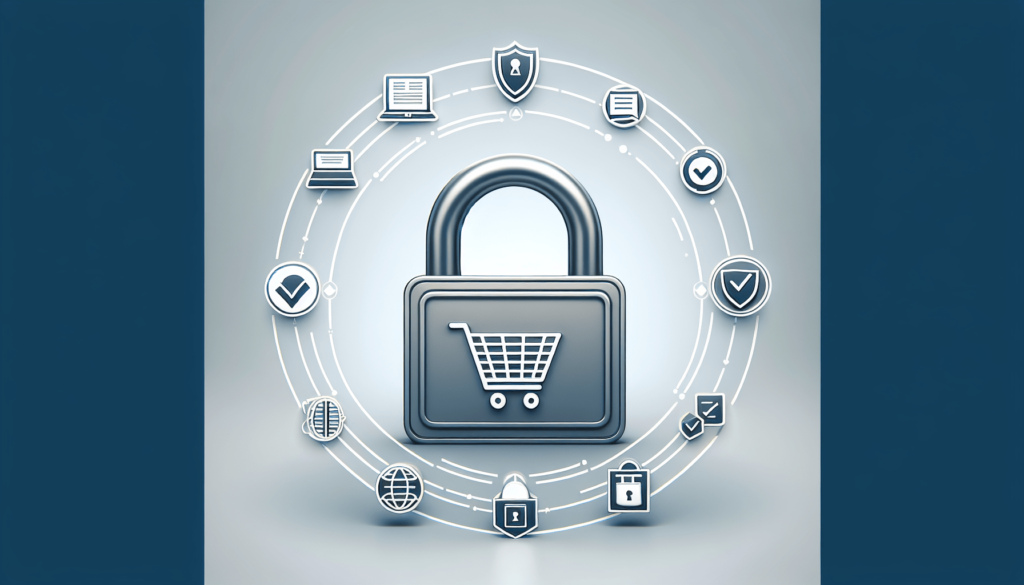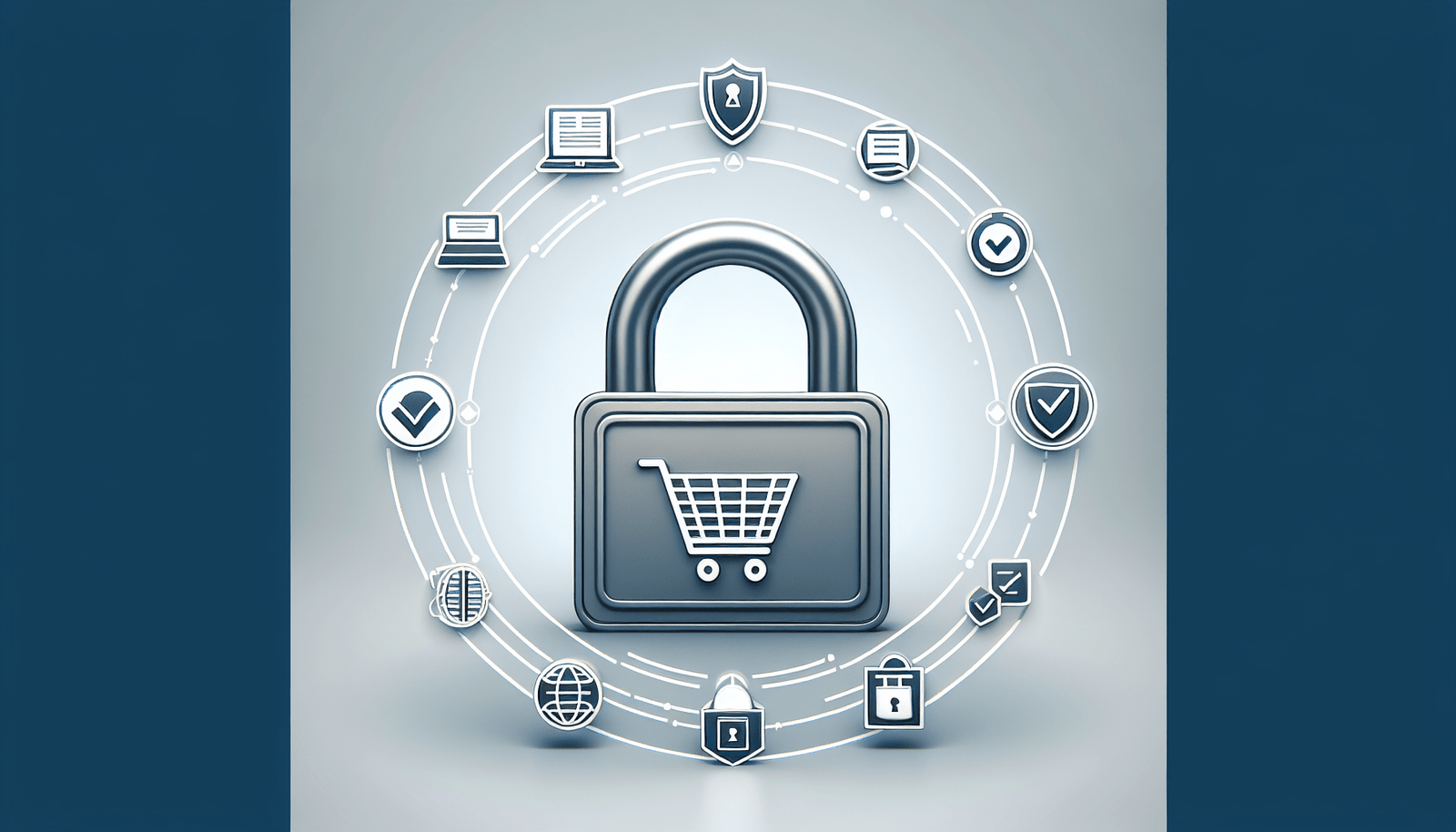Navigating the world of ecommerce can sometimes feel like walking through a maze—especially when it comes to staying compliant with GDPR regulations. In my guide, “Ecommerce GDPR Compliance Checklist,” I aim to demystify the complex world of data protection for your online store. Think of it as your roadmap for ensuring that every customer interaction and data transaction is secure, lawful, and trust-building. With clear, actionable steps and a sprinkle of humor, you’ll find it’s not just about ticking boxes but genuinely understanding how to protect your business and your customers’ privacy. Have you ever wondered if your ecommerce store is compliant with GDPR? If you’re unsure, you’re in good company, my friend. Navigating the labyrinth of data protection laws can feel like trying to understand why people willingly eat anchovies. It’s confusing, and often, a bit off-putting. But fear not! I’ve put together a friendly, comprehensive, and dare I say, enjoyable guide to help demystify the GDPR for you, focusing on ecommerce compliance.

What is GDPR, and Why Should You Care?
Let’s start with the basics. GDPR, or the General Data Protection Regulation, is a massive piece of legislation implemented by the European Union in 2018. Think of GDPR as the European Union’s way of saying, “We care about your privacy,” but with a lot of legal jargon thrown in for good measure. It governs all forms of personal data handling for individuals within the EU. If your ecommerce store doesn’t comply, you could face some hefty fines—up to €20 million or 4% of your global turnover, whichever is higher. Ouch, right?
The Essentials of GDPR
Personal Data and Your Ecommerce Store
Let’s break it down. Personal data isn’t just your name or email; it’s an umbrella term covering data ranging from IP addresses to cookie identifiers. Imagine if your grocery bill could recount everything you’ve ever bought—now, that’s personal data!
Consent is King
In the world of GDPR, consent is like the golden ticket in Willy Wonka’s factory. You need it for almost everything. This isn’t the sort of consent you get by slipping in a pre-ticked checkbox, either. We’re talking clear, affirmative actions—think of it as the enthusiastic “yes!” you need.
The Rights of Data Subjects
EU citizens have more rights than a five-star general in a parade. These include the right to access, rectify, erase, and even take their data to another provider. If GDPR were a party, data subjects would be the guests of honor with all-access passes.
The Checklist: Making Sure You’re Compliant
Now, onto the juicy part—your ecommerce GDPR compliance checklist. Think of this as your treasure map to avoiding potential fines, complete with some personal stories, because, why not?
1. Conduct a Data Audit
It’s time to put on your Sherlock Holmes hat and get sleuthing. You need to know exactly what personal data you’re collecting, where it’s coming from, and where it’s stored. It’s like when I lose my keys; I retrace every step until they turn up inside the freezer. Weird, I know.
Questions to Ask Yourself:
- What data are we collecting?
- Where is it coming from?
- Where is it being stored and for how long?
2. Update Privacy Policies
Your privacy policy should be as clear and concise as a recipe for boiling water. Easy, right? Unfortunately, legalese can make it seem like you’ve written the Magna Carta.
Components to Cover:
- What data you collect
- Why you collect it
- How long you will keep the data
- Who you share it with
- How users can access, correct, or delete their data
3. Secure Consent Mechanisms
You must get consent for various activities like newsletters, marketing emails, and data sharing with third parties. Make these requests as straightforward as asking someone if they’d like a cup of coffee.
Example Table: Consent Mechanisms
| Activity | How to Secure Consent |
|---|---|
| Newsletter Signups | Opt-in checkbox (not pre-ticked) |
| Marketing Emails | Opt-in during signup, with clear explanation |
| Data Sharing | Opt-in with details on who will receive the data |
4. Implement Data Subject Rights
Remember, your data subjects have superpowers. If they want to access their data or have it erased, make it as simple as one-click purchasing.
Steps to Take:
- Create a data access request form.
- Set up a standardized process for erasure requests.
- Ensure data portability options.
5. Secure Your Data
Think Fort Knox, but for data. Encryption, regular audits, and access control are your best friends here. Imagine you’re guarding a million dollars in gummy bears—precious cargo!
Security Measures:
- Encryption of stored and transmitted data
- Regular security audits
- Controlled access to sensitive information
6. Train Your Team
Your team should be GDPR-savvy. Provide regular training sessions and make sure everyone, from your IT guy to the janitor, understands the importance of data protection.
Anecdotal Pause:
I once had a colleague who thought GDPR was some new-fangled energy drink. After a 45-minute crash course, he became the office GDPR guru, correcting our missteps with the zeal of a convert.
7. Have a Data Breach Plan
If you experience a data breach, you have 72 hours to report it. Have a well-documented plan, like a fire drill but for data (and without the annoying alarms).
Checklist for a Data Breach Plan:
- Identifying the breach
- Containing the breach
- Assessing the impact
- Reporting to authorities and affected individuals
Staying Updated: The Key to Continuous Compliance
GDPR isn’t a one-and-done deal. The regulations can evolve, and so must you. Subscribe to newsletters, attend webinars, and maybe even make a friend in the legal department.
Keeping Track of Changes
New guidelines and cases continually interpret GDPR’s many layers. Make it a habit to read up on these changes. It’s like keeping up with your favorite TV show, but instead of plot twists and cliffhangers, you’re getting legal updates.
Practical Example:
Remember the time the EU Court of Justice ruled on the “Schrems II” case? If you were in the know, you were ahead of the curve and had time to adjust your data transfer protocols.

Conclusion: The Road Ahead
Implementing GDPR compliance might feel like you’re trudging through molasses at first. However, once you understand the principles and put steps in place, it becomes second nature—kinda like learning how to ride a bike. And let’s be honest, knowing that you’re protecting your customers’ data as fiercely as a mama bear protects her cubs is a pretty great feeling.
So, next time someone asks if your ecommerce store is GDPR compliant, grin widely, offer them a hot cup of coffee, and say, “Absolutely!” Well, ensure you’ve ticked all the boxes first, or else that smile might just be masking a world of non-compliant pain.
Happy data protecting! And remember, compliance isn’t just about avoiding fines; it’s about building trust and ensuring your customers feel secure.



